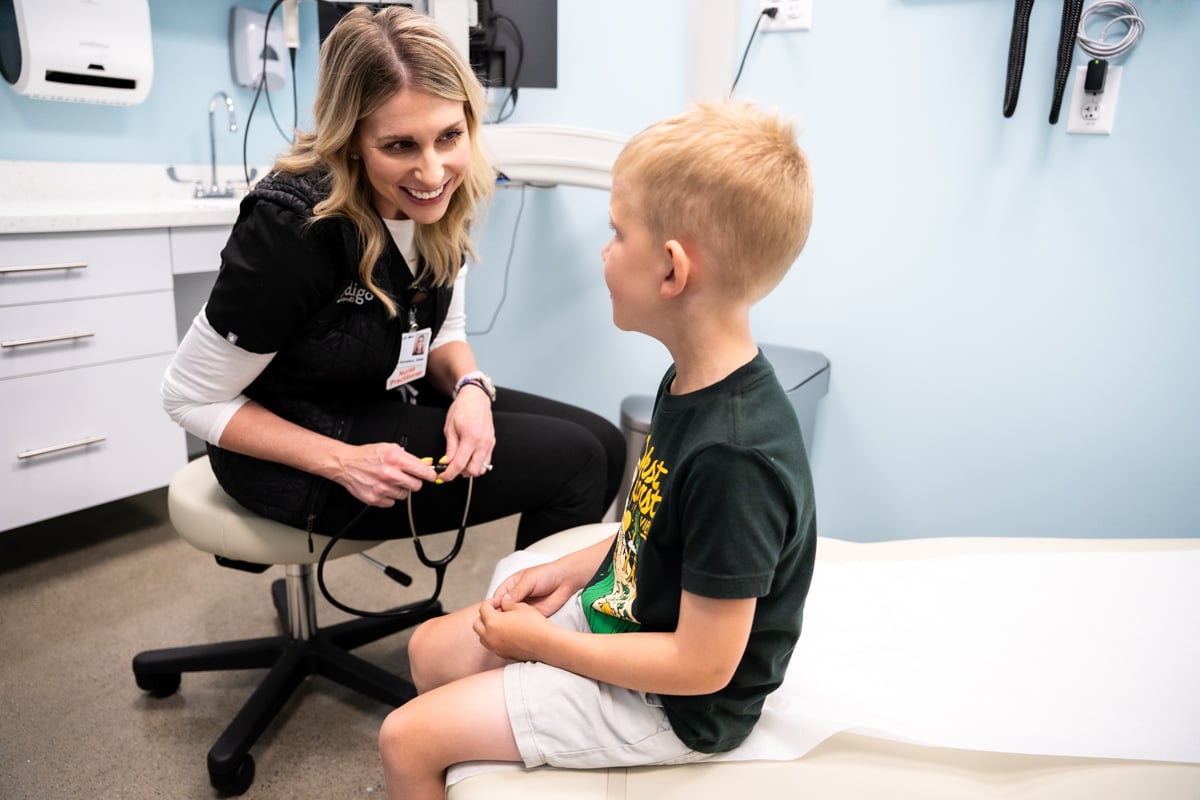We all know the familiar heart-thumping, stomach-clenching feeling that comes with a looming deadline, a near-miss on the freeway or a blooming goose egg on your kiddo’s head after a tumble.
Anxiety is your body’s natural fight-or-flight response to stress and a normal part of life. A little stress and anxiety can be a good thing. It can keep you alert to danger, help you react fast in risky situations, and boost productivity and creativity.
But when fleeting feelings of fear and worry don’t go away or get worse over time, your anxiety could be a problem.
What is an anxiety disorder?
An anxiety disorder is a type of mental health condition that causes excessive fear or dread of certain situations or things. Severe anxiety goes beyond typical nervousness or worry and can make it hard to get through the day.
Certain factors separate common anxiety from a more serious issue. You may have an anxiety disorder if:
- Your anxiety causes severe discomfort or symptoms that you can’t tolerate.
- Certain triggers leave you feeling helpless or prevent you from doing things.
- Your anxiety affects your quality of life and interferes with your ability to function normally.
- You can’t control your responses to certain situations.
Anxiety disorders are the most common emotional health condition and affect more than 30 percent of adults at some point in their lives. That number is even higher among teens. According to the National Institutes of Health, nearly 1 in 3 adolescents ages 13 to 18 will experience an anxiety disorder.
The good news is there are effective treatments that can alleviate and manage the sometimes debilitating symptoms that come with anxiety disorders.
What are the most common types of anxiety disorders?
There are several types of anxiety disorders that can have different symptoms. Here are five of the most common conditions:
- Generalized anxiety disorder (GAD) is marked by chronic anxiety and uncontrollable worry and tension over ordinary issues, such as money, family, work and health. Symptoms may include restlessness, difficulty concentrating and sleep problems.
- Obsessive-compulsive disorder (OCD) is characterized by recurrent, unwanted thoughts and compulsive behaviors, such as cleaning, hand washing and counting in certain patterns.
- Panic disorder. The core symptom of this disorder is sudden, unexpected and recurring panic attacks, which are a combination of intense physical and emotional distress. Panic attacks are often mistaken for heart attacks. Physical symptoms can include chest pain, heart palpitations, shortness of breath, sweating or feeling like you’re choking.
- Post-traumatic stress disorder (PTSD) may occur in people who have experienced or witnessed a traumatic event, such as a violent personal assault, an accident, military combat or a natural or human-made disaster. In addition to severe anxiety, symptoms can also include nightmares and flashbacks.
- Social anxiety disorder, or social phobia, causes overwhelming anxiety and excessive self-consciousness in everyday social settings. Individuals seriously affected by this disorder tend to avoid all social situations.
What are the common signs and symptoms of anxiety?
Different types of anxiety have different symptoms and can vary from person to person. Some common symptoms and signs are:
- A sense of impending panic, danger or doom.
- Nervousness, irritability or the feeling of being on edge.
- Difficulty falling or staying asleep.
- Difficulty concentrating.
- Weakness and exhaustion.
- Increased heart rate, hyperventilation, sweating or trembling.
- Headaches and muscle aches.
- Gastrointestinal problems.
- Avoiding activities you used to do.
Certain substances that disrupt the normal flow of chemicals in the brain can worsen anxiety symptoms, including:
- Caffeine.
- Alcohol and other substances, including hallucinogens, cannabis, cocaine and methamphetamine.
- Certain prescription medications, including stimulants, steroids and medicines used to treat asthma, thyroid issues and Parkinson’s disease.
- Nonprescription medicine, such as some decongestants and antihistamines.
What causes anxiety disorders?
Experts and researchers don’t really know what causes anxiety disorders. One thing they are certain of is that, like other forms of mental illness, anxiety disorders are not caused by character flaws, upbringing or personal weakness.
There are some factors that may put you at greater risk of developing an anxiety disorder:
- Traumatic or stressful life events experienced as a child or adult.
- Family history of anxiety or other mental health conditions.
- Certain personality traits make you more prone to anxiety disorders.
- Other mental health conditions, such as depression.
- Drug or alcohol use and misuse.
Anxiety disorders may also be linked to certain physical health conditions, including:
- Heart disease.
- Thyroid problems.
- Chronic respiratory issues, such as asthma or chronic pulmonary disease (COPD).
- Irritable bowel syndrome.
- Chronic pain.
Women are nearly twice as likely as men to have an anxiety disorder. While researchers aren’t sure why some contributing factors may include:
- Fluctuating hormones. Anxiety is a common symptom of hormonal imbalance.
- Low testosterone. Evidence shows that testosterone can improve mood and mental health. As women age, testosterone levels decrease.
- Reluctance to seek treatment. The sad fact is that women are often less likely to seek treatment for their anxiety, which can worsen symptoms.
Indigo Online Care can help ease your anxiety symptoms
Treatment for your anxiety begins with an Indigo Online clinician – even if it’s just to start a conversation about how you’re feeling. Indigo Online Care offers mental health screenings for adults 18 and older. Simply complete a quick questionnaire on your favorite device and get connected with a trusted Indigo clinician via video to talk about a care plan and treatment options.
Indigo video visits are offered every day from 8 a.m. to 8 p.m. at indigohealth.com.
When you need immediate help
If you or someone you know is in severe mental distress or has suicidal thoughts or behaviors, seek emergency treatment immediately. The following resources are free, confidential and available 24/7.
- Dial 988 for the National Suicide Prevention Lifeline
- Text HOME to 741-741, the Crisis Text Line.


